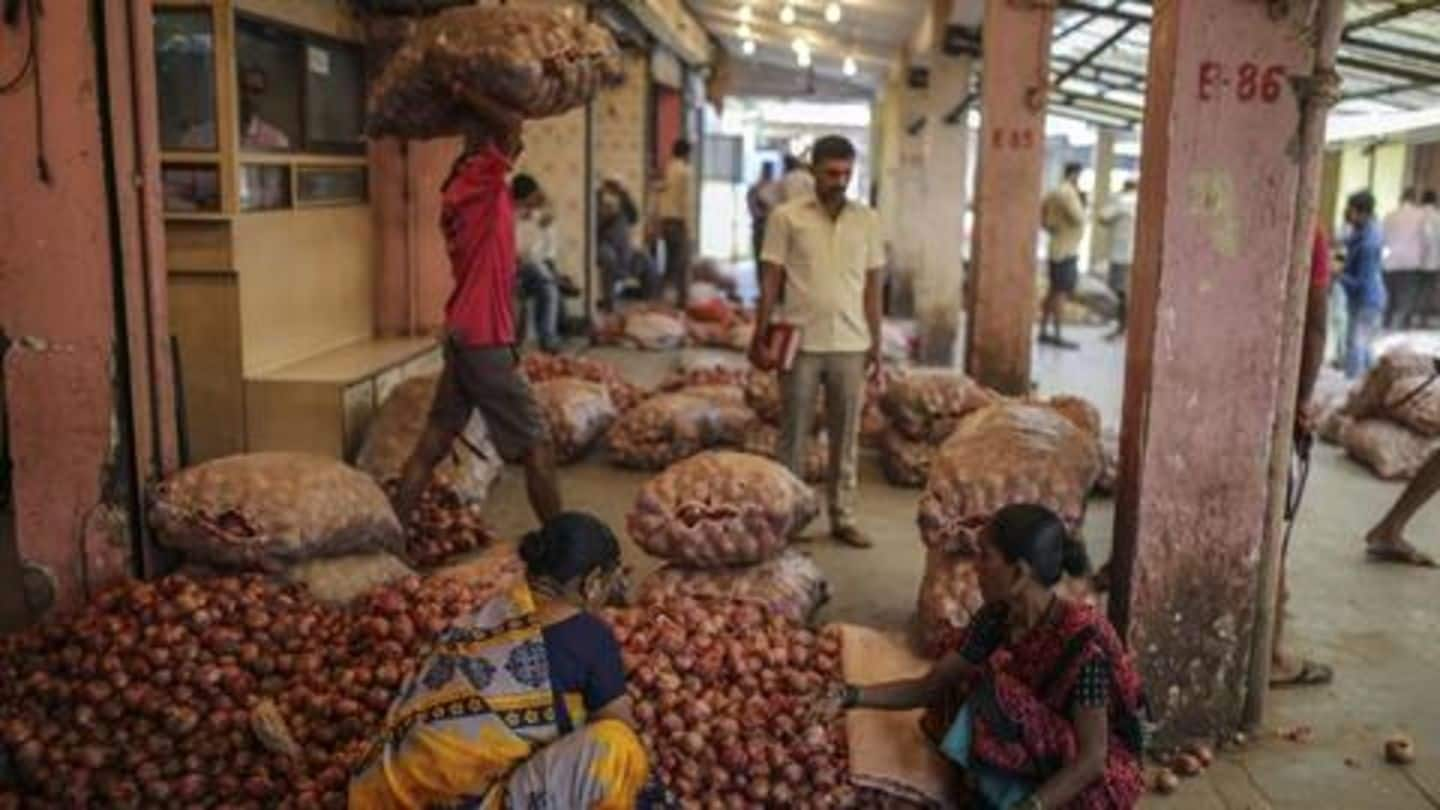
Lockdown Impact: Prices of pulses, sugar, potatoes, and onions rise
What's the story
India is almost half-way through the 21-day lockdown which began on March 25, but the days haven't been easy. With rocky transportation and disruption in supply chains, wholesale prices of vegetables, fruits, pulses, and sugar have increased in the last fortnight of March, a report in Indian Express said.
In the first fifteen days of March, the prices dipped a bit, the report added.
Lockdown
Context: A lockdown was announced to contain coronavirus' spread
A nationwide lockdown was announced last week to contain the spread of coronavirus.
After Prime Minister Narendra Modi ended his speech, the Ministry of Home Affairs released a statement detailing which services would remain functional.
The government assured that the supply chain won't be disrupted and that essential food items would remain available, but delivery hasn't been smooth.
Reason
Price rise more to do with transportation, less with production
Normally, when the supply chain is disrupted, retail prices rise and wholesale rates dip. But since goods are not moving, even the wholesale rates have increased.
The factors due to which prices rose are — unavailability of laborers to lift stocks and rocky transportation. It has nothing to do with production, agriculture experts said.
However, edible oil's production has been affected, courtesy labor shortage.
Data
Wholesale prices of potatoes, tomatoes, and onions increased
Data compiled by the Department of Consumer Affairs showed that between the first and second fortnight of March, prices of onion rose by 9%.
In the case of tomatoes, the prices increased by 37% between March 15 and April 3. On Friday, the price was reported to be Rs. 1,751/quintal.
Between March 1 and 31, the wholesale price of potatoes increased by 46.6%.
Details
Prices have been inconsistent, to say the least
The confusion around the lockdown has had a direct impact on wholesale prices. For example, on March 27, the wholesale price of tomatoes increased by 7%. It fell by 1% the next day and on March 29, it rose by almost 4%.
Similarly, the price of pulses rose to 5-8% during March 15-April 3 and a 2% increase was recorded in sugar prices.
Reasons
Wholesale prices depend on movement of goods, said an expert
"If supplies are disrupted, whatever limited supplies are coming, at the wholesale level, higher prices will be charged. It is a very murky situation at present. Wholesale prices depend on whether things are moving or not," Ashok Gulati, an economist, told the daily.
He attributed the rise of price in pulses to the fact that people were hoarding them. He feared a supply shortage too.
Cities
In Kolkata and Mumbai, vegetables were sold at high rates
The same is the case with green vegetables. In Kolkata, ladyfinger was sold at Rs. 40/kg last Saturday, as opposed to Rs. 30/kg a week before.
During the same period, cabbage and cauliflower were sold at Rs. 80/kg and Rs. 120/kg respectively in Mumbai, when the retail price a week ago was Rs. 60/kg and Rs. 80/kg.
In Mumbai, tomatoes' prices witnessed a 70% hike.
Global prices
Food prices dipped across the globe due to the pandemic
Around the globe, however, the food prices fell in March, because the demand-supply took a hit. Similarly, global oil prices also fell.
According to the Food and Agriculture Organization (FAO), which is tasked with measuring monthly changes for cereals, oilseeds, dairy products, meat, and sugar, the food price index averaged 172.2 points in March, coming down by 4.3% from February.